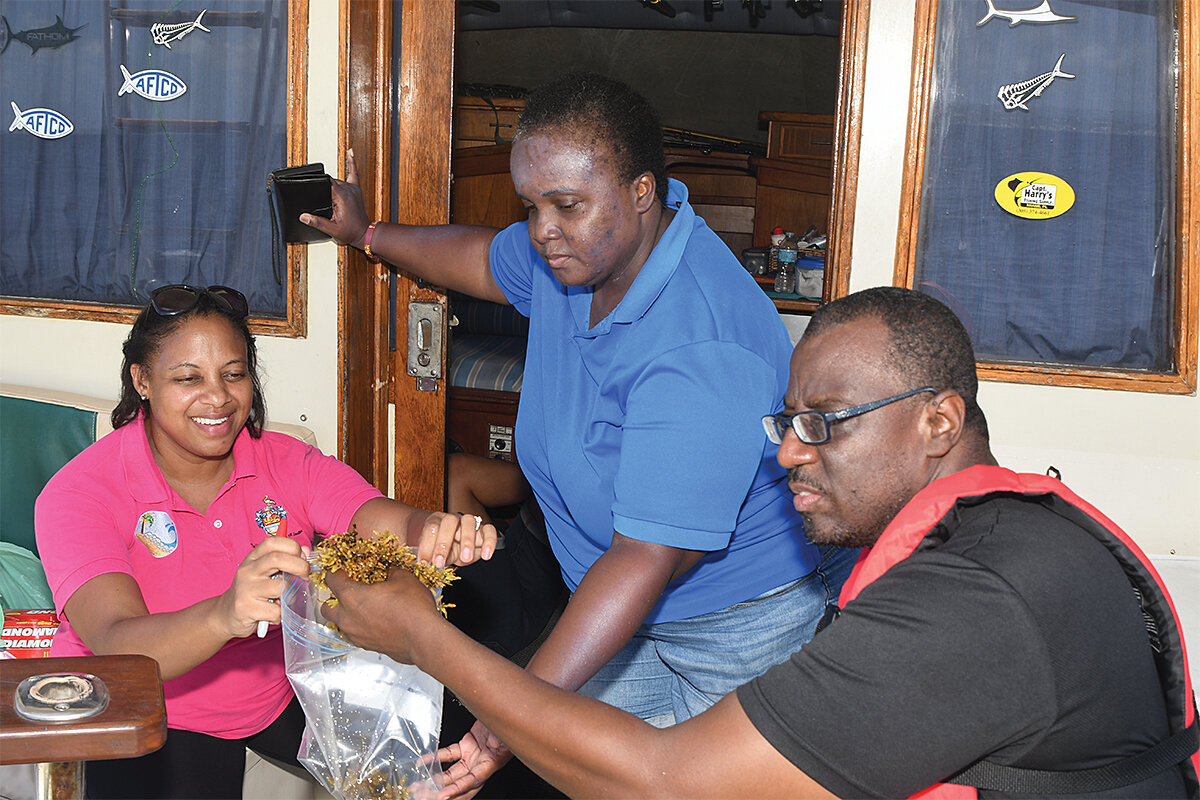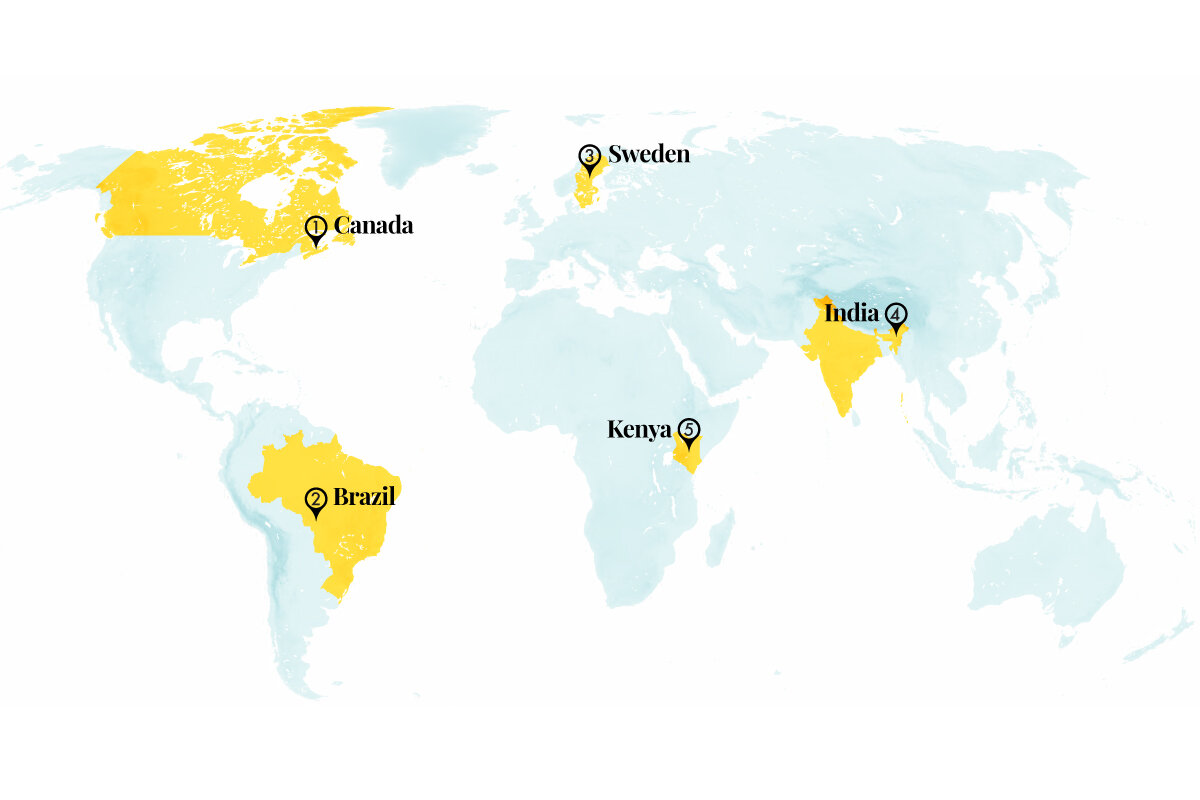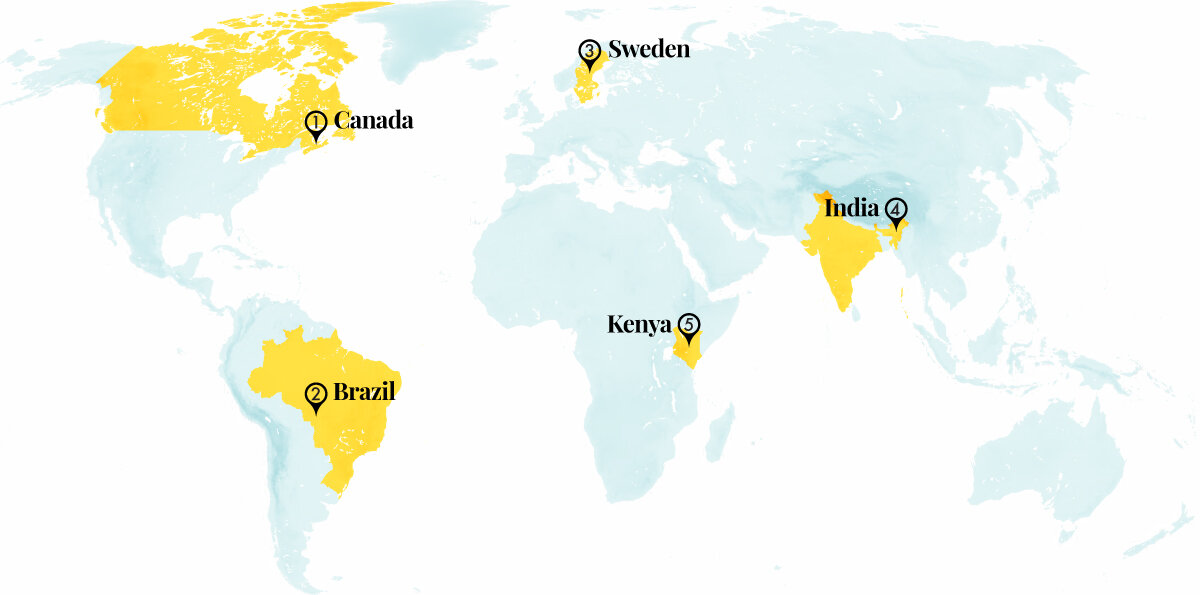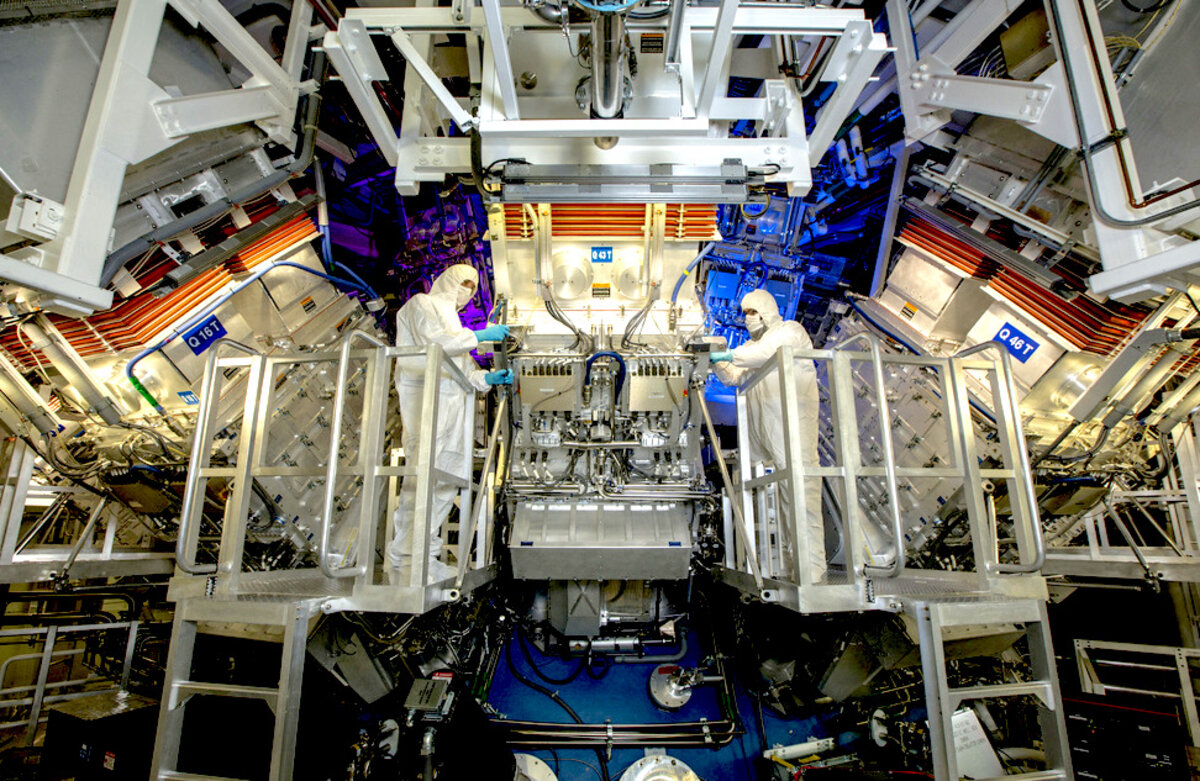This week marks the United Nations’ COP28, the biggest climate conference in the world. It’s increasingly becoming something closer to a world’s fair – a place to see and be seen. But the need is still for unglamorous negotiating, and that heart still beats, too, if you look for it.

Why is Christian Science in our name?
Our name is about honesty. The Monitor is owned by The Christian Science Church, and we’ve always been transparent about that.
The Church publishes the Monitor because it sees good journalism as vital to progress in the world. Since 1908, we’ve aimed “to injure no man, but to bless all mankind,” as our founder, Mary Baker Eddy, put it.
Here, you’ll find award-winning journalism not driven by commercial influences – a news organization that takes seriously its mission to uplift the world by seeking solutions and finding reasons for credible hope.
Explore values journalism About usMonitor Daily Podcast
- Follow us:
- Apple Podcasts
- Spotify
- RSS Feed
- Download
 Mark Sappenfield
Mark Sappenfield
We have plenty to discuss today, from climate conferences to the Ukraine war. But here is something for the science nerd in all of us (or at least me). Researchers have discovered that redwood trees in California survived a catastrophic 2020 fire by sprouting buds that began growing 1,000 years ago. The tissue grew under the bark and then paused until needed – a millennium later, it turned out.
The study shows the incredible resilience of the trees, which can draw on reserves stored for decades, even centuries. You can read about it here. In a week when much of humanity is focused on finding environmental balance, it is a reminder of nature’s extraordinary gifts all around us.
Already a subscriber? Log in
Help fund Monitor journalism for $11/ month
Monitor journalism changes lives because we open that too-small box that most people think they live in. We believe news can and should expand a sense of identity and possibility beyond narrow conventional expectations.
Our work isn't possible without your support.
Today’s stories
And why we wrote them
( 4 min. read )
A deeper look
( 16 min. read )
Our Climate Generation series is about young people finding new ways to address climate change through a shift in mindset. In Barbados, a group of students was tasked with finding a new green fuel for the island’s vehicles. Their answer surprised everyone.
( 6 min. read )
For many bilingual Ukrainians, the choice to now speak Ukrainian is a protest and a statement of identity. We chat with some who are making the switch – from a YouTube influencer to members of a Ukrainian class – and one woman who isn’t giving up on Russian. “Russia does not own my Russian language,” she says.
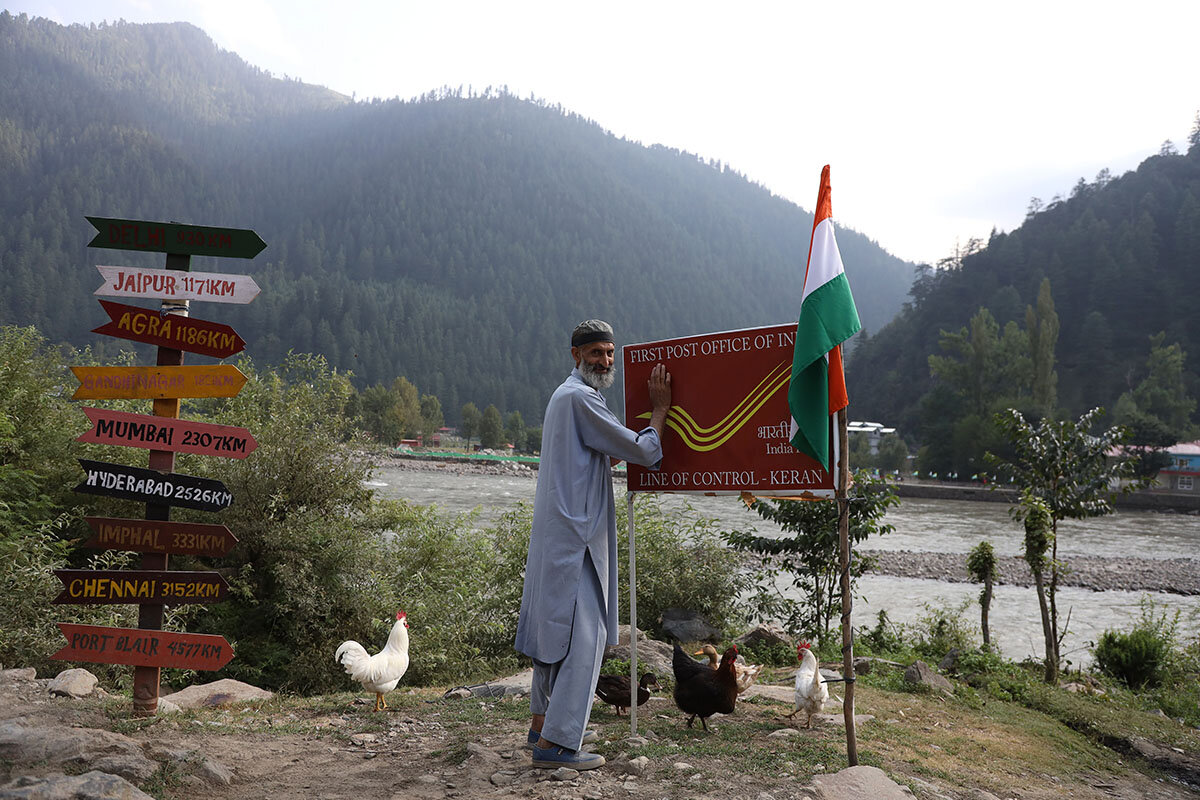
( 5 min. read )
Once India and Pakistan agreed to stop shooting at each other in Kashmir, a wonderful thing happened: Tourists came. The visitors are of the hardier sort – navigating bad roads and military checkpoints. But the village of Keran shows what peace can do. And it has bigger dreams.
Points of Progress
( 5 min. read )
Our roundup of global progress also speaks to the resilience of nature and human efforts to help. Scientists and the Indigenous community are teaming up to protect a key ocean ecosystem in Canada, while women in Brazil are collecting the seeds that could drive reforestation.
The Monitor's View
( 2 min. read )
This year’s United Nations summit on climate change may see a shift in its mental climate on Tuesday. With talks stalled on reducing carbon emissions, the United States plans to deliver its main – and potentially unifying – message at the summit: a global plan to commercialize nuclear fusion as a substitute for fossil fuels.
“Fusion energy is no longer just a science experiment,” said John Kerry, U.S. special presidential envoy for climate, last month in anticipation of the announcement. Rather, after a recent scientific breakthrough in fusion research, the nascent technology that offers unlimited energy can be “an emerging climate solution,” he said.
Pooling the world’s many private and public efforts to develop fusion – or the harnessing of energy from pushing atoms together – might help provide a change of tone in climate talks. If other nations sign on to the U.S. plan, it would add to an agreement at the G20 meeting of major economies in September to triple their renewable energy capacity.
Such steps toward boosting energy alternatives reflect a necessity to move climate negotiations from the stalled issue of how nations can share the sacrifices needed in curbing carbon pollution. The talks need a “trajectory of progress,” writes Asif Husain-Naviatti, a visiting fellow at Columbia University, in The Conversation, based on “global collective action” and “universal values.”
“Common ground can also often be reached incrementally by building trust, confidence, comfort and eventually clarity over time,” he writes, based on his experience in negotiating agreements on sustainable development.
The U.S. has been a leader in fusion, notably with last year’s breakthrough in fusion ignition at Lawrence Livermore National Laboratory. That achievement “showed that controlled fusion can be a source of clean energy for humanity,” said Dr. Scott Hsu, lead fusion coordinator at the U.S. Department of Energy. “Practical fusion energy may now be less a matter of time than of collective societal will.”
Fusion’s full promise may be years away, but in the meantime it may alter the dynamics in global climate talks. As economist Paul Romer, a winner of the Nobel Memorial Prize in Economic Sciences, has noted, in the many routes to solving climate change, “we will be surprised that it wasn’t as hard as we anticipated.” Innovation in energy, he adds, requires inspiration. “We consistently fail to grasp how many ideas remain to be discovered.” The U.S. plan for the world to collaborate on commercialized fusion sets the ground for success with climate change rather than failure.
A Christian Science Perspective
Each weekday, the Monitor includes one clearly labeled religious article offering spiritual insight on contemporary issues, including the news. The publication – in its various forms – is produced for anyone who cares about the progress of the human endeavor around the world and seeks news reported with compassion, intelligence, and an essentially constructive lens. For many, that caring has religious roots. For many, it does not. The Monitor has always embraced both audiences. The Monitor is owned by a church – The First Church of Christ, Scientist, in Boston – whose founder was concerned with both the state of the world and the quality of available news.
( 3 min. read )
As we open our hearts to God’s limitless love for all His children, we’re naturally empowered to help others in meaningful ways.
Viewfinder

A look ahead
Thank you for joining us today. We’re working on a suite of intriguing stories about the Israel-Hamas war tomorrow. We’ll examine the crackdown on freedom of expression in Israel, how the conflict is reverberating throughout the COP28 summit in the United Arab Emirates, as well as in K-12 schools in the United States. We hope you’ll come back and give them a look.




